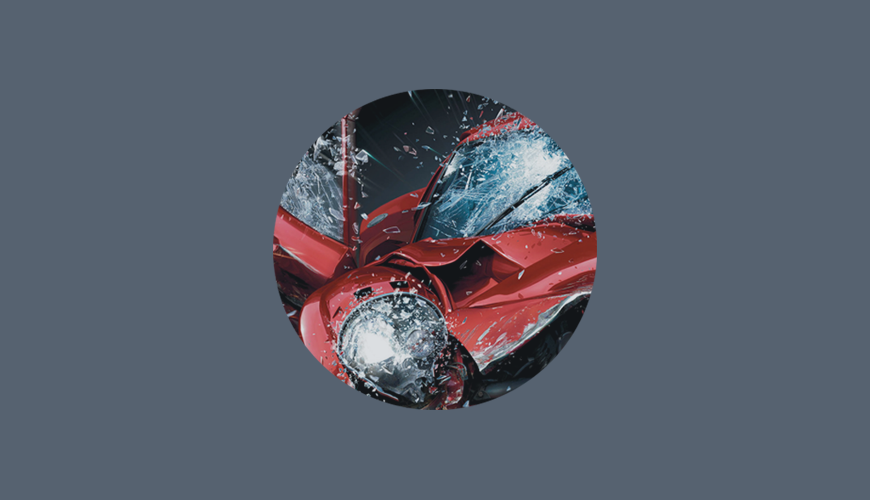What should I do after a car accident?

Being involved in a car accident, even just a bump, can be a stressful experience. In this blog, we’ll give you the information you need to help you decide what to do next.
Immediately after a Car Accident:
Stop the car when and where it’s safe to do so:
Failing to do this can incur a fine of up to £5,000 as well as 5-10 penalty points on your licence. It’s also possible to be banned from driving or even imprisoned depending on the seriousness of the accident, so even if you’re in shock it’s important to stay calm and stop. Switch off your car engine and turn on hazard lights to warn other drivers there’s a problem.
Call emergency services if anyone is injured or cars are in an unsafe place:
Call 999 if anyone is seriously hurt or cars are blocking the road. Use 101 if everyone is fine and there is no immediate danger but still significant damage. With injury or large amounts of damage, you also need to report the accident to the police in person within 24 hours and produce your insurance certificate within 7 days.
Exchange details with the other party or parties involved in the accident:
Accidents will vary and it’s not always possible to see immediately, who was at fault. Avoid saying sorry or apologising at the scene as it could count against you later on and look like an admission of blame. Regardless of who’s to blame, you should take details from the other driver(s):
- Car registrations, makes, models and colours.
- Names, contact details and insurers of drivers.
- Extra notes: scene location, time and date of the accident, how many passengers and anything you can remember from the accident while it’s fresh in your mind.
- It’s worth taking pictures of the cars in situation and also any obvious damage if possible and safe to do so.
If the others refuse to give details or drive off, try to note down at least their make, model and registration of car so that they can be traced later. Sometimes the heat of the moment can get to drivers; if you feel threatened or someone is being abusive, call the police.
If there’s no-one at the scene, for example if you hit a parked car, then wait until the person comes back or leave your details on their windscreen; still making a note of their car details.
Once you’ve done this, you need to call your insurer and let them know about the accident, passing on any other details you collected at the scene.
Witnesses
If someone witnesses the accident, it’s important to obtain their details too and ask them to note down what they saw while it’s still easy to remember accurately. If it’s not clear from damage who was at fault for the accident, the witness statement could be integral for proving a case.
If the police are present, it’s wise to make a note of the officer’s name, station and badge number so that you can contact them about police reports if needed, later.
Telling your Insurer
It can be tempting to omit certain facts or slightly change a story so that it doesn’t reflect badly on us, but if your insurance company finds evidence to the contrary then it can have serious consequences, so be sure to only give facts and explain everything clearly. As well as passing on details of others who were involved, be sure to mention any photographs, police reports or witnesses.
Keep Track of Any Aftercare
If you need medical treatment for injury relating to the crash, be sure to keep records of all visits to the doctor/hospital and receipts for prescriptions or medication. Should you need to rent a car so that you can still work, but your insurer doesn’t cover that, then keep paperwork for this too, you could claim the costs back if another driver is found at fault. Only claim for things you have a valid need for – an insurance company isn’t going to pay for a Mercedes hire if your Smart Car is being repaired.
Legal Assistance
Sometimes legal assistance is covered by your insurer, but if not, consider having someone to take the strain from chasing all of this up yourself. An experienced company can help you with recovery, recouping any out of pocket expenses and even compensation where applicable. If you’re at fault, a qualified and skilled firm can help you better defend yourself and support you in minimising costs. After all that’s what we specialise in, so why not get in touch with our team today?
Closing points
We hope you’re never in the unfortunate position of being in a road traffic accident, but if you are, our short but comprehensive guide will help you to stay calm and take you through what to do step by step. Remember our main points:
- Stop the car when it’s safe to do so
- Call the emergency services if someone is injured, a road is blocked or there is serious damage
- Report any injuries in person at the police station and bring your certificate of insurance
- Exchange details with other parties
- Take any witnesses contact details
- Take pictures and make notes while it’s still fresh in your mind
- Inform your insurer
- Keep receipts and paperwork for out of pocket expenses or medical care
- Consider legal assistance from a knowledgeable, reputable firm such as United Legal Assistance.
Stick to this guide and we’re confident that you’ll make it through a difficult time with as little worry, inconvenience and expense as possible. If you have any questions then our team would be more than happy to answer them for you. Just get in touch, we’re here to help!